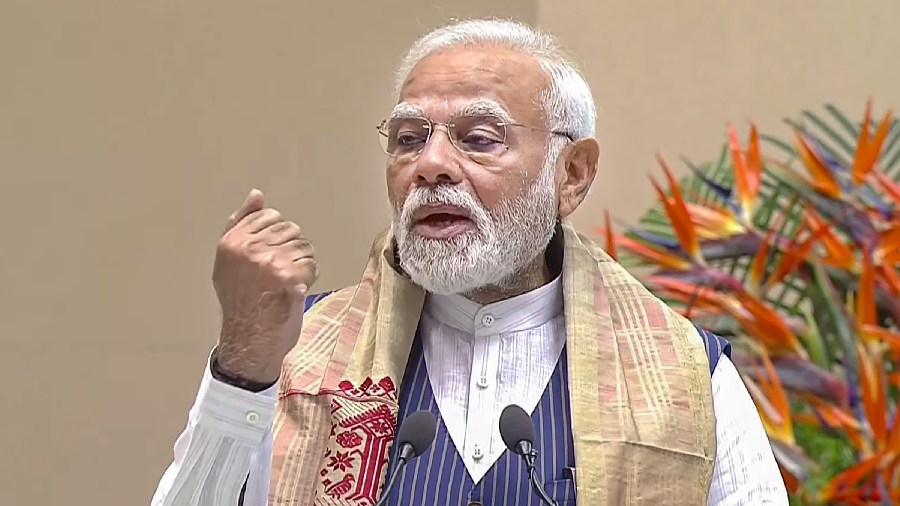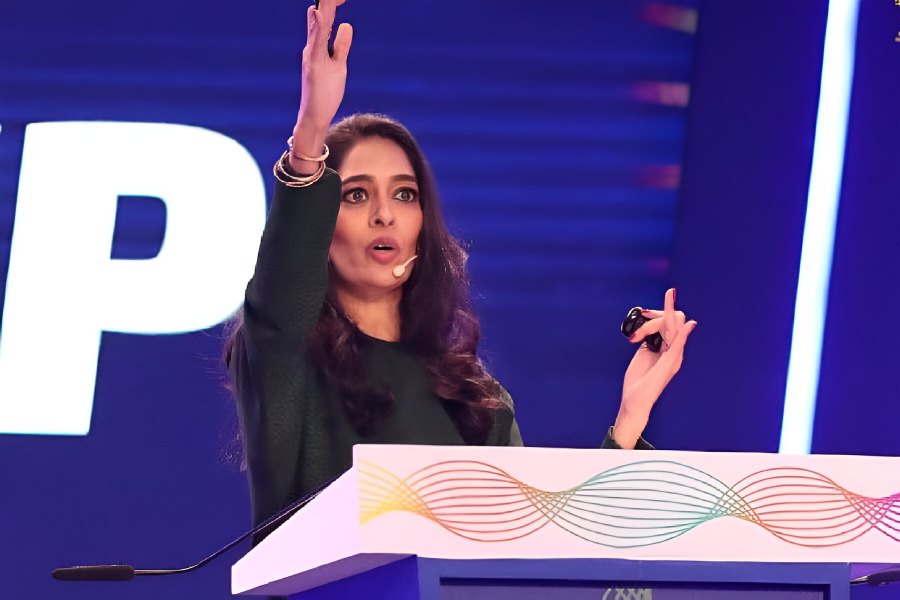Diplomacy involves efforts at strengthening a nation’s geopolitical interests. Often, though, it is also the art of managing expectations — globally and of one’s own people.
The jury is out on how well or poorly the Narendra Modi government is performing in the first of those tasks: after all, it still has 18 months left in its current term and could well win a third stint in office. But it is increasingly clear that the Modi government has failed miserably when it comes to realistically communicating India’s place in the world to its citizens. That’s dangerous for India. And it can come back to bite those in power.
Consider the recent G20 summit. On November 15, as the conclave began in Bali, Indonesia, the Bharatiya Janata Party’s Amit Malviya posted a 35-second clip on Twitter of Modi speaking with the United States president, Joe Biden. Biden had his hand on Modi’s back. “There was a time when Dr Manmohan Singh returned from these summits and no one took note of India, to now when the Indian Prime Minister is sought out by world leaders,” Malviya wrote.
Of course, the claim was untrue: at the G20 summit in Toronto in 2010, the then US president, Barack Obama, famously said after meeting Singh: “Whenever the Indian prime minister speaks, the whole world listens.”
But it was also short-sighted. Days after the culmination of the G20 summit, it became clear that the Modi government’s projection of the prime minister’s importance on the world stage at the meeting wasn’t quite shared by the US. The Indian ministry of external affairs said Modi and Biden had “reviewed” the bilateral relationship in their meeting on the sidelines of the G20. It listed out a range of themes — from “critical and emerging technologies” and “advanced computing” to the Quad, a grouping that also includes Japan and Australia — that Modi and Biden had supposedly discussed.
But Karine Jean-Pierre, the White House press secretary, described their interaction in Bali very differently: Modi and Biden, she said, greeted and met “very briefly”. Unlike India, the US did not put out any statement on the meeting that the Indian foreign office claimed took place between their leaders. Instead, the US issued a statement on a trilateral meeting that included the Indonesian president, Joko Widodo.
The US further embarrassed Modi when a press secretary cited the Indian prime minister’s pre-2014 visa ban— enforced by Washington after the 2002 Gujarat riots —in the context of whether the Biden administration would look to prosecute the Saudi crown prince, Mohammed bin Salman. The state department’s principal deputy spokesperson, Vedant Patel, pointed out that Modi’s visa ban became inconsequential once he came to power, giving him diplomatic immunity. The Saudi crown prince —accused by the US of having engineered the assassination of the journalist, Jamal Khashoggi — would similarly enjoy immunity from prosecution, Patel argued.
That reminder of Modi’s dodgy past — and how the US viewed him just eight years ago — was not “relevant, necessary or contextual,” the Indian foreign office responded angrily to Patel’s comments. All of this has unfolded in the backdrop of the US failure to approve a new ambassador to India — New Delhi has now gone the longest ever since Independence without an envoy from Washington.
There is no evidence that the US is trying to deliberately snub Modi. But what the recent incidents in the backdrop of G20 underscore is a deeper reality — relations between major nations are based on what they seek from each other, and for the most part are not dependent on individual leaders. Whether with Singh, Modi or any other Indian prime minister, Washington’s equation will always hinge on the state of the broader relationship.
India is a valuable partner for the US — not because of Modi but because New Delhi is aligned with Washington on key common challenges. Cringe-inducing efforts to suggest otherwise can only boomerang.
Charu Sudan Kasturi is a senior journalist who writes on foreign policy and international relations











